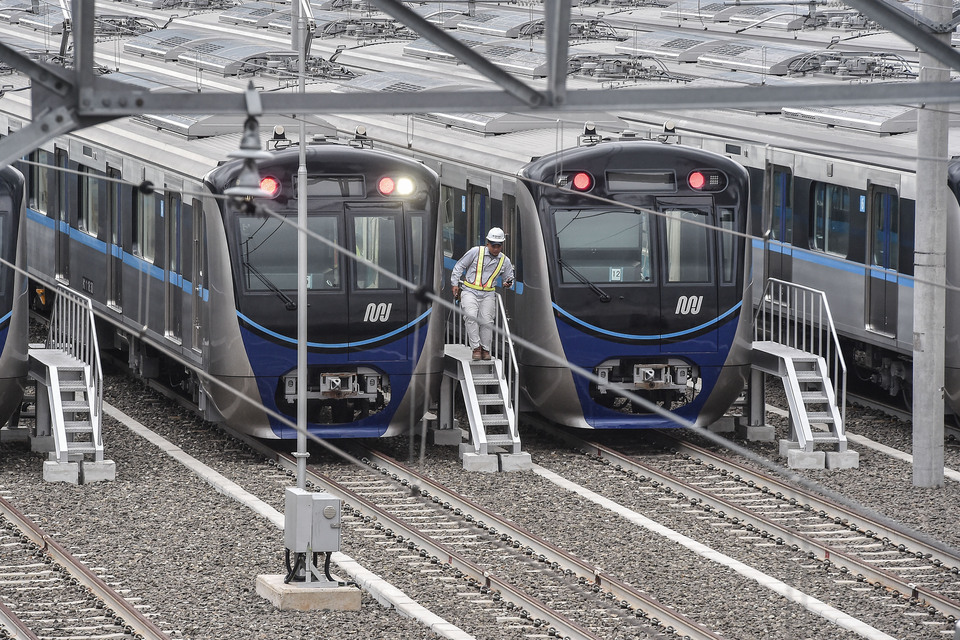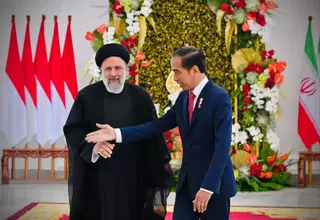Getting Ready for Transportation 4.0

When commercial jets started to take to the skies in the 1950s, they heralded a new era in transportation. The modern jet has redefined both space and time and has allowed humanity to traverse the globe and visit far-flung places. Today, on average eight million people fly every day and more than four billion people fly annually.
It is thus no surprise that governments around the world have been investing billions of dollars in building airports. In Indonesia too, we are experiencing a boom in air travel with 15 new airports scheduled to be opened within the next two years allowing more visitors to explore paradise on earth.
Despite this explosion in air travel, apart from the introduction of high-speed trains in Japan, the transportation industry has not seen any major innovation for the past 60 years. That is until now.
With the advent of self-driving cars and the Internet of Things, we are about to witness a sea change in mobility, both individually as well as collectively. Fully-autonomous vehicles are already being tested in a number of cities across the world and are expected to be deployed by the end of 2020.
The future of transportation will be felt most keenly on the ground, rather than in the air. Fast-speed trains using magnetic levitation will cut down travel time between cities while also protecting the environment.
Electric buses and trucks will help reduce carbon dioxide emissions and create greater efficiencies. Indeed, modern transportation is currently experiencing major changes thanks to new transformative technologies that are marrying cloud computing, digitalization, seamless supply chains and artificial intelligence.
With such fast-paced change, transportation companies – whether they are moving people or moving cargo – should transform themselves into intelligent enterprises. Jakarta MRT, for example, has redefined public transportation in the nation's capital by not only providing fast, efficient and on-time service but also by integrating front-end and back-end operations seamlessly.
According to Jakarta MRT president director William Sabandar, he is able to access real-time, detailed operational information on his mobile phone about each activity at various stations. Furthermore, the public can engage directly with the company through the mobile app with feedback and comments, helping the company to improve its services.
The main benefit for commuters is time saved when moving around Jakarta. A journey that used to take more than one hour can now be done in 15 minutes or less. As Sabandar said, "My business is not just about transportation but I am in the business of time and lifestyle."
Jakarta MRT is the perfect example of an intelligent enterprise that is thriving in the experience economy. According to Sabandar, the company is leveraging technology to become an intelligent enterprise that provides the best service possible to the Indonesian public even as it expands.
I am proud that Jakarta MRT runs on the SAP technology platform. At SAP, we believe strongly that technology will drive change and fuel growth. This is why SAP is helping many Indonesian transportation companies to grow while at the same time improving efficiency and lowering costs.
How often have we heard of the high logistics costs in Indonesia affecting the price of goods on supermarket shelves?
As the Indonesian economy expands, the ability of the transportation sector to contribute to GDP growth will be critical. Latest figures point to the transportation sector growing by an average rate of 20 percent per annum from 2013 to 2017 and the sector makes up about 25 percent of the country's GDP.
The opening of the Jakarta MRT is only the start of a process that will redefine road and rail transportation in the country. Alongside the MRT, Jakarta will also soon have the LRT (light rail transit) system that will further lighten traffic congestion.
By utilizing ERP (enterprise resource planning) software, further efficiency gains can be improved particularly when the city government implements the electronic road pricing system.
By using data analytics and by having a good ERP process, the city administration may be able to better manage traffic flows especially in highly congested areas. Road users may pay higher rates during peak hours and lower rates during off-peak hours, which benefits them as well as the city as a whole.
These kinds of variable pricing can be managed by using ERP processes and the latest technology where the benefits flow far beyond immediate gains in efficiency and timeliness. They also create greater transparency in terms of pricing and good governance.
Jakarta is not the only city in Asia that is using smart solutions to manage traffic congestion. Nanjing in China, for example, has implemented the smart traffic system that ingests and enriches continuous data streams from transportation systems across the city to predict status, influence travelers' behavior and provide recommendations for planning, resulting in better performance across all of its public transportation modes.
According to Frost & Sullivan, the transportation and logistics sector is expected to remain highly positive and will continue to expand for many years given President Joko Widodo's continued focus on infrastructure development and the burgeoning e-commerce sector.
There are now more than 100 million internet users in Indonesia and this number will only continue to grow, driven by the usage of smartphones and improving communication systems. The country's e-commerce sector is expected to grow to US$100 billion by 2025, up from under US$30 billion currently.
This is good news for the industry as well as the country. For transportation and logistics companies, however, the challenge will be to leverage technology to manage growth. This means adopting machine learning technologies, artificial intelligence and data analytics to drive business processes.
SAP's latest performance benchmarking for travel and transportation companies mean benefits of up to 36 percent higher operating margins where companies use IT to enable strategic and competitive advantage.
For nearly 70 years, the transportation industry has seen only incremental changes. That is about to change dramatically not only in terms of modes of transportation but how logistics companies operate.
As in many other industries, technology will be the main driver of change and companies that adopt new technologies early will have a clear advantage.
Andreas Diantoro is the managing director of SAP Indonesia. Prior to joining SAP, Andreas was the president director of Microsoft Indonesia from 2012 to 2017.
Tags: Keywords:POPULAR READS
KPK Identifies Sidoarjo Regent as Suspect in Corruption Probe
KPK has identified Ahmad Muhdlor Ali as a suspect in a corruption case involving the Sidoarjo Regional Tax Service AgencyEconomic Concerns Overshadow Security Worries for Indonesians in Iran
Indonesian citizens currently in Iran are more concerned about rising inflation than the security situation in the country.IDX Slides 2 Percent as Geopolitical Conflict Rattles Market Confidence
The IDX attributed the subdued performance of the index at the start of the week to the escalating geopolitical tensions in the Middle EastRupiah Declines Against Dollar Amid Geopolitical Unrest
The Indonesian rupiah depreciated against the US dollar in Tuesday's trading session, driven by escalating tensions between Iran and IsraelNasdem Vows to Honor the Constitutional Court Ruling on 2024 Presidential Election Dispute
Nasdem's Willy Aditya commits to respect the Constitutional Court's ruling on the 2024 presidential election dispute.Popular Tag
Most Popular






















